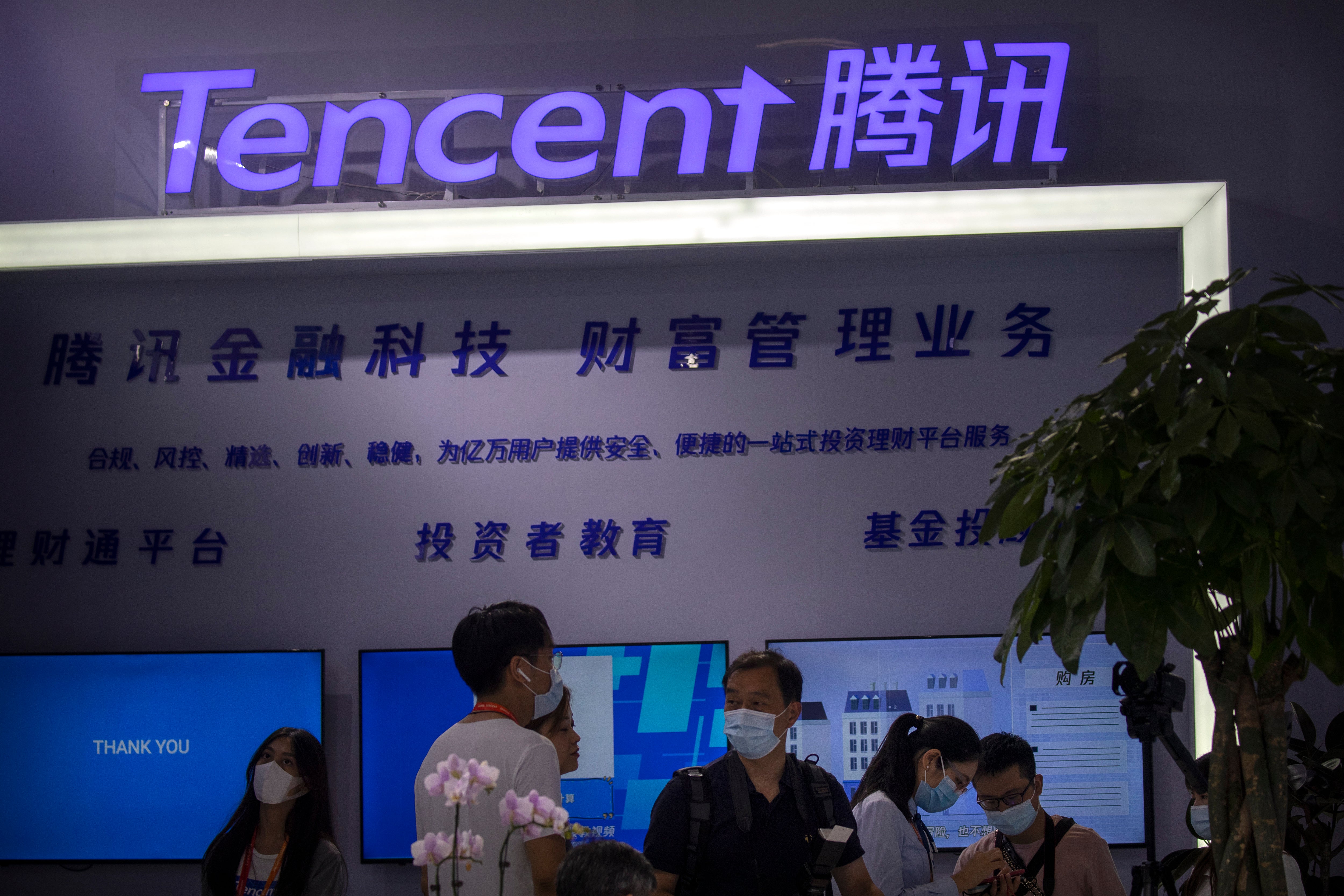China's Tencent ordered to end exclusive music contracts
Chinese regulators have ordered internet giant Tencent to end exclusive contracts with music copyright holders

Your support helps us to tell the story
From reproductive rights to climate change to Big Tech, The Independent is on the ground when the story is developing. Whether it's investigating the financials of Elon Musk's pro-Trump PAC or producing our latest documentary, 'The A Word', which shines a light on the American women fighting for reproductive rights, we know how important it is to parse out the facts from the messaging.
At such a critical moment in US history, we need reporters on the ground. Your donation allows us to keep sending journalists to speak to both sides of the story.
The Independent is trusted by Americans across the entire political spectrum. And unlike many other quality news outlets, we choose not to lock Americans out of our reporting and analysis with paywalls. We believe quality journalism should be available to everyone, paid for by those who can afford it.
Your support makes all the difference.Internet giant Tencent was ordered by regulators to end exclusive contracts with music copyright holders, adding to increased enforcement of anti-monopoly and other rules as Beijing tightens control over booming online industries.
Tencent controls more than 80% of “exclusive music library resources” following its 2016 acquisition of China Music Group, the State Administration for Market Regulation said Saturday. It said that gives Tencent the ability to get better terms than competitors receive or to limit the ability of rivals to enter the market.
Tencent Holdings Ltd., best known abroad for its WeChat messaging service, has a sprawling business empire that includes games, music and video. It is among the world’s 10 most valuable publicly traded companies, with a stock market value of $680 billion.
In order to “restore market competition,” Tencent must end exclusive music copyright contracts within 30 days, the market regulator said in a statement. The company is barred from requiring providers to give better terms than competitors receive.
Tencent promised on its social media account to “conscientiously abide by the decision.”
Regulators are stepping up enforcement of anti-monopoly, data security, financial and other rules against Tencent, e-commerce giant Alibaba Group and other companies that dominate entertainment, retail and other industries.
The enforcement has hurt the stock market value of some companies. Shares in ride-hailing service Didi Global Inc., which made its U.S. stock market debut last month, are down 21% after regulators announced a probe of its “network security” and ordered the company to overhaul handling of customer data.
Regulators have publicly warned major companies not to use their market dominance to keep out new competitors.
Tencent was blocked by regulators on July 10 from combining its game platforms Douyu and Huya on the grounds that might reduce competition.
On Wednesday, the Chinese internet regulator reprimanded Tencent, Alibaba, microblog platform Sina Weibo and e-commerce service Xiaohongshu for allowing sexually suggestive stickers or short videos of children to be distributed on their services.
___
AP researcher Henry Hou contributed to this report.